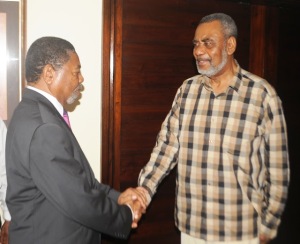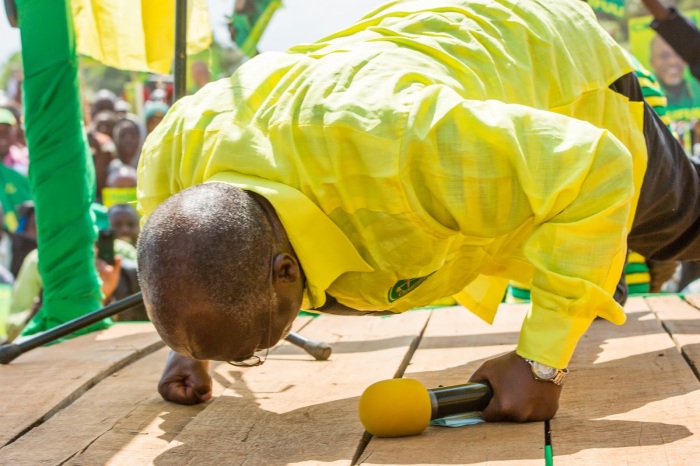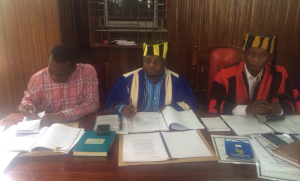Nini kifanyike Tanzania?
Nini kifanyike Tanzania?
Zitto Kabwe
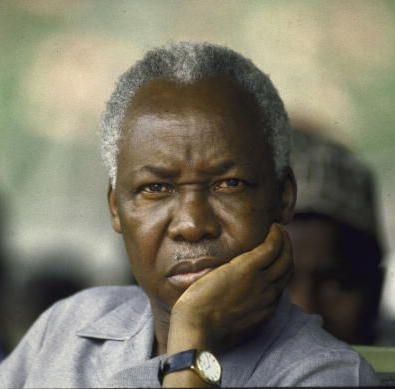
Hali yetu ya sasa
Ni dhahiri kuwa hofu imetanda miongoni mwa Watanzania. Ingawa watawala na mashabiki wao hukanusha jambo hili, ukweli ni kuwa nina amini wao wenyewe ndani ya mioyo yao wanakiri kuwa nchi sasa inaendeshwa kwa hofu na wananchi wamejaa hofu kubwa.
Hivi sasa mwananchi akifanya jambo lolote linaloonekana kuwa kinyume na fikra za watawala, wenzake wanamtazama kwa jicho kuwa atakuwa mhanga wa vitisho, mateso, kutekwa, kupotea ama kubambikiwa kesi.
Hakika jamii iliyojaa hofu haiwezi kuwa jamii huru na kamwe haiwezi kupata maendeleo.
Hofu hii iliyotamalaki imekomazwa na matendo ya utawala kukandamiza uhuru wa watu kujieleza, kupata/kupasha habari, kukusanyika na kuhoji/kukosoa Serikali yao. Hizi ni haki za kikatiba ambazo wajibu wa Serikali ni kuzilinda.
Tumeshuhudia wananchi na haswa vijana wakishtakiwa mahakamani kwa makosa yatokanayo na haki yao ya kujieleza kwenye mitandao ya kijamii. Baadhi ya vijana wamehukumiwa vifungo ama kulipa faini.
Mmiliki wa mtandao wa JamiiForums, mtandao wenye kutoa mawazo huru kwa wananchi na kwa muda uliochangia kwa kiasi kikubwa vita dhidi ya ufisadi nchini, Maxence Melo bado anaendelea na kesi zilizofunguliwa dhidi yake ikiwa sehemu ya vitisho vya dola ambavyo pamoja na shauri hilo amekuwa akilazimishwa kutoa majina ya wachangiaji wa mtandao huo.
Licha ya kwamba katiba yetu inaruhusu vyama vya siasa kufanya mikutano ya hadhara na kujitangaza, kuandikisha wanachama, kukosoa sera za Serikali na hata kueneza sera mbadala, Serikali kupitia amri isiyo ya kikatiba wala kisheria ya Rais imezuia vyama kufanya shughuli zake hizo halali.
Matamko halali kabisa ya kisiasa ya wanasiasa sasa yanachukuliwa kama ni uchochezi na watoa matamko kushtakiwa kwa makosa ya jinai ikiwemo kwa kutumia sheria mpya kandamizi ya huduma za habari (The Media Services Act 2016 ).
Tumeshuhudia wabunge wakifungwa jela kwa makosa ya matamko ya kisiasa ambayo yangepaswa kujibiwa kisiasa tu kutoka upande wa pili ( watawala ).
Hivi sasa viongozi wakuu wa vyama vya upinzani wanakwenda mahakamani kila wiki kujibu tuhuma za kisiasa, lengo likiwa ni kuwapotezea muda na kuwajaza hofu washindwe kufanya shughuli zao ipasavyo.
Utawala umeweza kusambaza hofu kwa kugusa kila kundi katika jamii. Wanasiasa wanatishiwa na kesi za uchochezi, kutekwa au majaribio ya kuuawa kwa kupigwa risasi mchana kweupe ndani ya eneo lenye ulinzi mkubwa.
Waandishi wa Habari wanatishwa kwa ama vyombo vya habari kama magazeti kufungiwa au kutekwa na kutoonekana kabisa; Wakulima bei za mazao yao zimeporomoshwa makusudi kutokana na maamuzi ya hovyo ya kisera ya Serikali; Wavuvi wanachomewa nyavu zao na mitumbu yao kuchomwa moto; Wafugaji wanaondolewa kwenye maeneo yao ya malisho ili kuanzisha ranchi binafsi na wengine kuuwawa; Wafanyabiashara wanabambikiwa kesi ama kodi kubwa ili kuwakomesha na kuweka utii kwa dola; Wanawake wanatukanwa na kudhalilishwa ikiwemo kuwanyima fursa ya kujiendeleza kimasomo watoto wa kike wanaopata uja uzito mashuleni.
Viongozi wa dini wanaojaribu kuhoji watawala wanachunguzwa uraia wao; Wanaharakati wa asasi za kijamii wanaotoa mawazo yasiyopendeza watawala wanatangazwa sio raia wa Tanzania na asasi zao kutishiwa kufutwa kwa kutungiwa kanuni kandamizi za uendeshaji wa asasi hizo.
Wananchi kwa ujumla wanaumizwa na hali mbaya ya uchumi inayotokana na maamuzi ya hovyo ya kisera ya Serikali katika utekelezaji wa miradi mikubwa ya maendeleo. Wananchi wa Zanzibar wamenyimwa haki ya kuongozwa na Serikali waliyoichagua katika uchaguzi mkuu wa mwaka 2015. Hakuna kundi katika jamii ambalo limebakizwa, kila kundi limeguswa.
Tunataka nini?
Kwa maoni yangu Watanzania wengi wanapenda kuwa huru; Uhuru wa Mawazo, kujieleza, kukusanyika nk. Nadhani tunataka Tanzania yenye raia wenye uhuru kwa mujibu wa Katiba. Vyama vya siasa viwe huru kufanya shughuli zao bila bugudha na kwa mujibu wa sheria, Bunge la Wananchi liwe huru kuisimamia Serikali bila kuzongwazongwa na Watendaji, vyombo vya habari viwe huru kuandika/kutangaza habari bila woga wala upendeleo; Wananchi wawe huru kuikosoa serikali dhidi ya sera zake kandamizi zinazowasokomeza kwenye umasikini, Wazanzibari wapate haki yao ya uchaguzi (electoral justice) waliyoporwa Oktoba 2015 na viongozi wa dini na asasi za kiraia wawe huru kufanya kazi zao bila vitisho. Kiufupi tunataka nchi ya kidemokrasia ambayo asasi za kidemokrasia zinatimiza wajibu wao kwa uhuru.
Tufanye nini?
Sasa wakati umefika wa kujenga mshikamano kurejesha demokrasia tuliyokuwa nayo nchini na kujenga demokrasia madhubuti ambayo haitachezewa tena na yeyote. Haitoshi kila mtu kusema lake kwa wakati wake anapoguswa na matendo ya kidikteta, tunapaswa kuwa na sauti nyingi lakini zinazoratibiwa ili kuhakikisha kuwa tunalinda haki za watu na kuhami uchumi wa nchi wetu usiendelee kuporomoka. Tunapaswa kuwa na harakati za kutetea haki za kijamii (social justice), haki za kujieleza (freedom of speech) na Demokrasia. Tunapaswa kujenga vuguvugu pana la watu a broad based popular movement) ili kuleta mabadiliko ya kijamii, kiuchumi na kisiasa.
Ili kujenga vuguvugu hili ni lazima kuweka mbele maslahi mapana ya Taifa letu na kuachana na maslahi binafsi ambayo yamekuwa yakitawala siasa za Tanzania kwa miongo miwili sasa bila mafanikio ya maana. Ni lazima kukubali ukweli kuwa, kwa hali ya nchi ilivyo sasa hakuna chama kimoja pekee ama kundi la jamii moja pekee linaweza kukabili utawala dhalimu wa kidikteta uliopo nchini na kushinda. Wasioweza kuukabili ubinafsi wao kwenye mambo haya tuwaombe basi wauweke kama akiba kisha tukimaliza kazi hii ya mabadiliko waendelee nao. Kila jambo tufanyalo lazima lijibu swali ‘ hili linatusaidia kutufikisha kwenye lengo la kuondoa utawala wa kidikteta nchini?’
Ni lazima tuwe na mshikamano katika kukabili dubwana tunalokabiliana nalo. Hatupaswi kuruhusu hata siku moja ya ziada baada ya uchaguzi mkuu wa mwaka 2020 tukiwa na ‘regime’ hii tuliyonayo sasa.
Hili ni jambo linalowezekana iwapo tutakuwa na mshikamano madhubuti bila kujali vyama vyetu vya siasa.
Watanzania wapo tayari, wanapaswa kuongozwa tu. Uongozi huu ni lazima uwe na watu wasiopenda yanayoendelea nchini ndani ya watawala, walio nje ya watawala, Wafanyakazi, Wakulima, Wavuvi, Wafugaji, Vjana, Wanawake, Wafanyabiashara, wana harakati na kila mtu anayetaka Tanzania na Zanzibar zilizo njema zenye Uhuru na Demokrasia.
Tunaweza tukiamua. Haya #twenzetu tukaunde vuguvugu hili kuanzia mitaani tunamoishi, vijijini na mijini.
Dar Es Salaam
5/11/2018
Tamko la ndg. Kabwe Zuberi Ruyagwa Zitto kuhusu Rasilimali na Madeni
Tamko la ndg. Kabwe Zuberi Ruyagwa Zitto kuhusu Rasilimali na Madeni
Ndugu Watanzania, Kama mnavyofahamu kuwa ibara ya 132(4) na (5) na Sheria ya Maadili ya Viongozi wa Umma, Sheria namba 13 ya mwaka 1995 inataka viongozi wote wa umma kujaza fomu za Tamko la Rasilimali na Madeni. Tamko hilo huwasilishwa Sekretariat ya Maadili ya Viongozi kabla ya mwisho wa kila mwaka. Kama nifanyavyo siku zote, nawajulisha rasmi kwamba nimetimiza matakwa hayo ya katiba na sheria kuhusu Maadili ya Viongozi.
Inafahamika kuwa Chama Cha ACT Wazalendo, kwa mujibu wa Katiba yake na Azimio la Tabora, kimeelekeza kuwa Viongozi wake wote waweke wazi kwa Umma Tamko la Mali, Madeni na Maslahi. Kwa kufuata masharti ya Katiba ya Chama Cha ACT Wazalendo natangaza rasmi fomu zangu nilizowasilisha Leo Sekretariat ya Maadili ya Viongozi wa Umma.
Ni matumaini yangu kwamba itafikia wakati Daftari la Rasilimali na Madeni la Viongozi wa Umma litakuwa linawekwa wazi kwa Umma ili wananchi waweze kujua Mali, Madeni na Maslahi ya Viongozi wao na pale ambapo kiongozi ametoa habari zisizo sahihi au kuficha mwananchi aweze kutoa Taarifa kwenye Sekretariat na Baraza la Maadili liweze kufanya kazi yake ipsavyo.
Mfumo wa kuweka wazi Rasilimali na Madeni ya Viongozi wa Umma ni mfumo endelevu na muhimu kwenye vita vita dhidi ya ubadhirifu na ufisadi. Mataifa kadhaa duniani hutumia mfumo huu ( public disclosure of leaders’ assets and liabilities) kuwezesha mapambano dhidi ya rushwa na ufisadi. Nchini Uingereza na Kanada kwa mfano, daftari la matamko ya Rasilimali na Madeni ya Viongozi lipo wazi kwa kila mwananchi kuona na huuzwa kwenye duka la vitabu la Bunge.
Namsihi Sana Rais John Pombe Magufuli kusaidia kufanya mabadiliko makubwa ya Sheria ya maadili ya Viongozi ili kurejesha na kuboresha Miiko ya Viongozi katika kuimarisha vita dhidi ya ufisadi nchini. Rais aliahidi kuweka wazi Mshahara wake alipokuwa anazungumza katika kipindi cha 360 cha Clouds TV. Ninamkumbusha afanye hivyo na pia aweke wazi Mali, Madeni na Maslahi yake ya Kibiashara ili awe mfano kwa Viongozi wengine Nchini.
Kabwe Zuberi Ruyagwa Zitto, Mb
Kigoma Mjini
30/12/2016
FOMU ZA MAADILI KIONGOZI WA CHAMA 1/2
FOMU ZA MAADILI KIONGOZI WA CHAMA 2/2
Vitabu 53 nilivyosoma mwaka 2016
Vitabu 53 nilivyosoma mwaka 2016
Zitto Kabwe
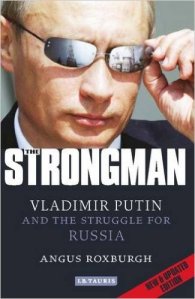
The Strongman: Vladimir Putin and struggle for Russia – Augus Roxburgh
Mwaka 2016 nimesoma vitabu 53. Nimeongeza vitabu nilivyosoma tofauti na mwaka 2015 lakini sikuweza kufikia idadi ya mwaka 2014 ambapo nilisoma vitabu 56. Hiyo ndio rekodi ya juu zaidi tangu nilipoanza kuorodhesha vitabu nilivyosoma mnamo mwaka 2012. Mwaka 2013 niliorodhesha vitabu vichache zaidi nilivyosoma.
Mafanikio makubwa ya mwaka huu ni kuongeza vitabu vya Riwaya (fiction), ingawa mtaona mwandishi mmoja, Jeffrey Archer amejitokeza sana kuliko wengine. Hiyo ni kutokana na kusoma kazi yake moja nzuri na yenye mafunzo mengi sana kwa wanasiasa iitwayo First Among Equals. Kazi hiyo ilinifungua macho na kuanza kusoma Clifton Chronicles (vitabu 7) na kufuatia mapendekezo ya wanaonifuata kwenye mtandao wa kijamii wa Instagram niliweza kupata vitabu vingine vya mwandishi huyu. Kwangu mimi Bwana Jeffrey Archer ni Mwandishi wa Riwaya Bora wa Mwaka 2016.
Licha kutaka kuanza na Gavana Ben Bernanke, nilijikuta naanza na vitabu kuhusu Russia na Rais wa nchi hiyo Vladimir Putin. Msukumo huo ulitokana na namna nilivyomsoma Mtawala mpya wa Tanzania Rais John Magufuli kulinganisha na Kiongozi wa zamani wa nchi yetu Rais Jakaya Kikwete. Kitabu nilichoanza nacho mwaka 2016 ni The Strongman: Vladimir Putin and the Struggle for Russia kilichoandikwa na Angus Roxburgh. Baada ya kusoma kitabu hiki nilijikuta ninanunua vitabu vingi kuhusu Urusi, Putin, Udikteta, Demokrasia na Maendeleo ili kuweza kuelewa mwelekeo wa Siasa za Tanzania za sasa. Vitabu hivyo vimenisaidia sana kujua namna ya kutafsiri watawala wapya kiasi cha kuunda neno Dikteta Mamboleo (neo-dictatorship) na kuipa tafsiri yake mnamo tarehe 29 Septemba 2016; kwamba Dikteta Mamboleo ni mtawala ambaye ana uzalendo usio tiliwa shaka na anahangaika kuleta maendeleo ya nchi yake lakini hataki kuhojiwa kwa namna yeyote ile.
Mwaka 2016 pia ulinifunua kuhusu uwezo mkubwa na umahiri wa wachapishaji wa Vitabu wa ndani. Nilipata fursa adhimu ya kuzungumza na Mzee Walter Bgoya wa Mkuki na Nyota Publishers. Vitabu kadhaa nilivyosoma katika orodha ya mwaka huu vimechapishwa na Mkuki na Nyota. Nilijifunza mengi mapya ya historia ya nchi yetu na Afrika nzima. Juzuu za masimulizi ya Ukombozi wa Kusini mwa Afrika nilizipata kutoka Mkuki na Nyota na humo nilipata mambo mapya mengi sana. Kisa kimoja kinachonichekesha kila nikumbukapo ni hadithi ya Rais Khama (baba) wa Botswana alivyobeba machungwa kwenye ndege kumletea zawadi Mwalimu Nyerere akimtania kuwa sera zake za Ujamaa zilileta njaa nchini.
Mwaka huu ninawawekea mapema vitabu nilivyosoma tofauti na miaka iliyopita kwa sababu kwa uwezo wake Manani sitaweza kusoma vitabu vingine baada ya leo kwani nitakuwa na majukumu ya malezi. Karibu kwenye orodha ya vitabu vyangu mwaka 2016.
- The Strongman: Vladimir Putin and struggle for Russia – Augus Roxburgh
- Putin’s Progress – Peter Truscott
- The Putin Mystique: Inside Russia’s Power Cult – Anna Arutunyan
- The Invention of Russia: The Journey from Gorbachev’s Freedom to Putin’s War – Arkady Ostrovsky
- I am going to Ruin Their Lives: Inside Putin’s War on Russian Opposition – Marc Bennet
- Red Notice: How I became Putin’s no 1 enemy: Bill Browell
- Ruling Russia: Authoritarianism from the Revolution to Putin – William Zimmerman
- Dictator’s Learning Curve: Inside the global debate for Democracy – William Dobson
- Dictator’s Handbook: Why bad behavior is almost good politics – Bruce Buener de Mesquita and Alastair Smith
- Dictator – Tom Cain
- The Warlord- James Steel
- Tanzania: A Political Economy ( 2nd Ed ) – Andrew Coulson
- Thieves of the State: Why corruption threatens global security – Sarah Chayes
- How to Run A Country – Marcus Tullius Cicero
- The End of Karma: Hope and fury among India’s young – Somini Sengupta
- The Hidden Wealth of Nations: The scourge of tax havens – Gabriel Zucman
- Mystery of Capital – Hernando De Soto
- So long a letter – Mariama Ba ( Special thanks to January Makamba for recommending this to Bunge Readers’ Club )
- The Fifth Mountain – Paulo Coelho
- First Among Equals – J. Archer
- Kane and Abel – J. Archer
- Best Kept Secret – J. Archer
- The Sins of the Father – J. Archer
- Only Time Will Tell – J. Archer
- Shall we Tell the President – J. Archer
- Mightier Than The Sword – J. Archer
- The Fourth Estate – J. Archer
- Honour Among Thieves – J. Archer
- Cometh The Hour – J. Archer
- This was a Man – J. Archer
- The New Collected Short Stories – J. Archer
- Building a Peaceful Nation – Bjerk
- Burundi Peace Dialogue- Pierre Buyoya
- Burundi: The Biography of a small African Nation – Nigel Weltt
- The Thabo Mbeki I know – ed. Sifiso Mxolisi and Miranda Staydom (Special Thanks to Amb. Ami Mpungwe, a contributor to the very book)
- Clinton Cash – Peter Schweizer
- Connectography: Mapping the Global Network Revolution – Parag Khanna
- The Rohingyas: Inside Myanmar’s Hidden Genocide – Azeem Ibrahim
- Stringer: A Reporter’s Journey in the Congo – Anjan Sundaram
- Uchambuzi wa Sera, Uongozi na Maslahi ya Watanzania – CSL Chachage
- Haki, Amani na Maendeleo: Nafasi na Wajibu wa Mahakama Tanzania – S J Bwana
- Wanawake wa TANU – Susan Geiger (a special thanks to my wife for bringing this home)
- African Socialism or Socialist Africa – A M Babu ( Special Thanks to Dr. Khamis Kigwangalla for suggesting it to Bunge Readers Club and Ezekiel Kamwaga who lent it to me )
- The Courage to Act – Ben Bernanke
- The Litigators – John Grisham
- White Lioness – Henning Mankell
- The Dogs of Riga – H. Mankell
- Fifth Woman – H. Mankell
- Kennedy’s Brain – H. Mankell
- Treachorous Paradise – H. Mankell
- Harusi ya Dogoli – Athumani Mauya
- Mlinzi Mkuu wa Mwalimu Nyerere – Peter Bwimbo
- The Hashim Mbita Project: Southern African Liberation Struggles Contemporaneous documents ( 1960 – 1994 Volumes 1, 3, 5, 6 & 7 ) – Ed. A J Temu and J N Tembe
Will the real Opposition emerge under Magufuli’s repressive CCM?
Will the real Opposition emerge under Magufuli’s repressive CCM?
Zitto Kabwe
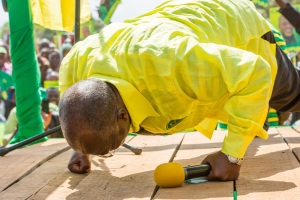
When President Magufuli was addressing a political rally in Manyoni Township, Singida region on the 29th July 2016, he referred to the opposition in Tanzania as a dying snake. He said “after you cut off a snake’s head, it keeps thrashing its tail. You may think it hasn’t died, but it has”. It appears that he believes the recent announced move of protests by the leading opposition party in Tanzania, CHADEMA, are signs of a dying party. He said “where are those parties? They are dead.” In the same rally he dared CHADEMA to go to the streets and demonstrate. The President threatened in ‘street’ Swahili “watakiona cha mtema kuni. Wasinijaribu. Sijaribiki.” Meaning he isn’t testable and he will crash them heavily.
CHADEMA announced a new operation called UKUTA, meaning an alliance against dictatorship in Tanzania. The Swahili word ‘ Umoja’, which I translated here as an alliance, is actually misused since it was the decision of one party. Even parties under UKAWA, a consortium of opposition parties that supports the people’s constitution, are not part of UKUTA. How CHADEMA ended up using the word Umoja is either a result of arrogance, ignorance or simply a lack of a proper word to have in an announce-able term UKUTA, which literarily means the WALL. President Magufuli may have interpreted the lack of an actual alliance as an indication of the fall of UKAWA, thus the snake parable.
The President is prone to issuing threats. He appears to enjoy it. In his coronation as the chairperson of CCM, he raised eyebrows when he said that had he been a CCM leader during its presidential primaries, he would have liquidated all CCM congress national executive members who were pro-Edward Lowassa. When the Commander in Chief of the Armed Forces makes a remark like that, it is really threatening. If he cannot tolerate dissent within his own party what will he do to the opposition? The dead snake parable leaves a lot to be desired.
For years opposition activists and some political analysts have been predicting the end of the CCM regime. In the course of three elections, CCM’s popularity has been dwindling from 80% in the year 2005 to 61% in 2010 and 58% in 2015 (if we can take official Presidential elections results as an indication of overall party popularity). The last election was a clear test of CCM’s ability to maintain power as several of its influential members left for the opposition including two Former Prime Ministers who are now in CHADEMA. However, since the election of Magufuli as President and eventually the head of CCM, the party seems to be charting ways to survive. Will CCM survive? Will the opposition thrive? These are the questions I attempt to put to the readers of this article and our political analysts who are seemingly muted.
CCM is an authoritarian party in all sense and purpose. It is a dominant single party with some ability to adapt. President Kikwete’s methods of adaptation were through opening up; for example, allowing the Parliament to hold the Executive to account. He lost a prime minister following a parliamentary work and reshuffled his cabinet thrice, strengthened the National Audit Office and allowed free debate of the Controller and Auditor General (CAG) report of government accounts and did not hinder opposition parties to operate freely and organize. He faced criticism within CCM for being too liberal and later the opposition called him weak. Kikwete’s guided nomination of Magufuli as CCM presidential candidate is arguably one of his Machiavellian tactics of survival. President Magufuli in particular and CCM in general takes the opposite route to Kikwete. The true colours of an authoritarian, dominant CCM are starting to show.
Authoritarian parties like CCM have two main goals. First, to hold onto power by eliminating real and perceived threats. Second, to generate popular support in order to achieve development goals. In his book, The Dictator’s Dilemma, Bruce Dickson (2016) observes that the above goals are achieved through the survival strategy of legitimation, co-optation and repression.
President Magufuli’s legitimation process is through war on corruption, ambitious development agenda and straight talk to the population. After he came to power in November 2015, he launched a crackdown against corruption and has continued the crackdown ever since. He has as well announced anti corruption crackdown within CCM. His anti corruption platform has been a platform of the opposition for a decade. The author and his colleagues, like the former CHADEMA Secretary General, Wilbrod Slaa, used the parliament to legitimise opposition politics by raising corruption scandals and holding the government to account. The opposition in general and CHADEMA in particular lost the platform during the 2015 elections and literally handed it to the CCM candidate. Other parties like ACT Wazalendo had a more clear agenda on anti-corruption but its voice wasn’t heard in the campaign dominated by two candidates, one from CCM and the other a former CCM ex-Prime Minister running under the opposition alliance ticket of UKAWA. The CCM candidate was announced winner and he wasted no time in starting an anti-corruption agenda. He now owns it.
Tanzanians hated CCM because of, among other things, its inherently corrupt nature. The people of Tanzania have started to fall in love with the new no nonsense leader. He got them instantly and the opposition lost an agenda despite trying to discredit him on his lack of following due process. The opposition used elitist arguments. The common man and woman just wants action, not legal technicalities and that’s what the President is giving them.
President Magufuli sugarcoated the anti-corruption agenda with an ambitious development agenda. Every time he speaks he reiterates the industrialisation agenda. He uses a simple language that wananchi understand. Pockets of the urban-based, middle to upper class segments of the country see his agenda as unclear and largely ambiguous. But many more Tanzanians have swallowed the message as it is wholeheartedly. There is limited evidence of the President’s successful implementation of his development agenda. All projects he has opened to date are projects that were started under Kikwete. But citizens don’t care. Because he has won them on anti-corruption. The President currently talks about new aircrafts for dying Air Tanzania and people cheer while less than 5% of them fly. He got it. He won the narrative. The opposition lost it.
The President has embraced CCM cadres who lost the CCM primaries during the 2015 parliamentary elections. With this action, he has kept most members of the 11th parliament on their toes. Losers of the primaries are being ‘fed’ to be able to go back and contest against sitting members in the next election. Sitting members will now work to please the President so that, as the chairman of their party, he doesn’t cut them off during the nomination in 2020. In short, President Magufuli has created a shadow parliament of his own. The political genius many people underestimate. He now has a carrot and stick for Members of Parliament (MPs). He has a cat to threaten most of them. As a result, we will likely witness a parliament that becomes more toothless and subservient. Haven’t we already started seeing that?
Some sectors of society, sectors important to a vibrant and open democracy, face quiet co-option. Academia and media come to mind. Open repression is reserved for political parties. The President himself announced a ban on public rallies by political parties. The ban is completely unconstitutional and against political parties’ enabling legislation. In his address at Manyoni on the 29th July he clarified by allowing Members of Parliament to conduct rallies in their own constituencies and since he is the President he is the only one who can do rallies all over the country. This move is an effort to channel only one point of view to the public – that’s of the President and his party and in the process frustrate other parties into oblivion.
Under those circumstances many people have started to write obituaries for the opposition.
However, I would still argue that these circumstances are at times a necessary condition for the rise of real opposition politics. One-agenda politics must pave way for issues-based politics. Repression is conducive for likeminded members of the opposition parties to work together without worries. The liberal approach of President Kikwete created an environment of envy amongst comrades and a sense of ‘it is our time to eat’. It has had detrimental consequences for politics and development in the country, and for the welfare of the opposition.
The real opposition will have to engage in providing a critical analysis of the regime and offer an alternative policy. Issues like budget management will be critical as signs are out there that the fifth phase government will have more adverse audit opinion than any other before. Out of budget expenditures are rampant and more threatening is the drawdown of foreign reserve. It has never happened in the previous 20 years for the Tanzanian foreign reserve to decline and it was happening even before Magufuli started to implement his budget. US$500m has been withdrawn from our foreign reserve between November 2015 and June 2016. The amount remaining is enough to serve the country only for 3.6 months. The best practice for developing countries is to have a reserve enough to cover at least 6 months.
Tax revenues are still at the levels of the previous administration. High profile announcements of monthly revenues collection are no longer there because the taxman was collecting arrears and the government attacks ‘the chicken laying golden eggs’ i.e. the business community, without adequately investing in alternative sources of revenue for the country.
These are the issues the opposition must bring up. Well-articulated issues backed by expert evidence. Critical analysis of data and of government actions and reactions. The era of scandal-raising politics is over; the regime has co-opted it. Only politics of solutions can support the opposition now. The steady slide towards repression must be fought vehemently. But if the opposition does not articulate issues affecting the day to day lives of people, the repression will be supported by people. A coalition of likeminded people who have credentials to fight against corruption and articulate developmental politics must emerge and take up the ideological bankruptcy existing in the country now. Lack of issues and business as usual weaken the opposition and discredit most of our moves, including the recent UKUTA operation.
Once our modus operandi changes and we start tackling issues and articulate them, the real opposition will emerge, stronger and ready to govern.
Magufuli a transformative or a perfectionist of status quo? @TheCitizenTZ @ACTWazalendo @ZittoKabwe
By Zitto Kabwe, MP
General election of 2015 was one of the toughest in Tanzanian history. John Magufuli, a candidate of the ruling party won the election with the lowest proportionate of votes than any other since introduction of multiparty elections in 1995. With 58% of votes, he assumed power and quickly established himself as the landslide victor. President Magufuli started to take actions that sent clear message that his was not a business as usual administration.
For the people who have been advocating for a clean government by fighting corruption especially large scale ones, Magufuli was a welcome leader. Many of us celebrated his actions popularly known as ‘ kutumbua majipu’ and as of the date of writing this article more than 150 people have been sacked from their positions of power. Most notable sackings were at port authority and revenues authority. Achivements received in his first month was massive increase of government monthly revenues collections.
The President delivered his maiden speech in parliament that insisted largely on his anti corruption platform and his aim of cutting down unnecessary government expenditures, boosting revenues and industrialization of the economy. He became a talk of the region and sometimes globally. The Economist magazine dedicated an article for him vis a vis a rise of social media in politics ( though everybody knows that he himself is not a tech savy person ).
Has 100 days of Magufuli administration defined him of what kind of a leader he is? Can we call him a transformative leader? Is he a reformer? Is he just a perfectionist of the status quo?
Archie Brown in his seminal book The Myth of the Strong Leader, describe a transformational leader as ‘the one who plays a decisive role in introducing a systemic change’ whether of the political or economic system of his or her country. ‘ It suggests profound change, but a fundamental reconstruction of the system into one that is qualitatively better than what has gone before’. It may be very early (just 100 days) to define President Magufuli, however the first 100 days may help us to see what kind of a President Magufuli will become.
Magufuli took office with a promise of Change. His opponents promised change too. The political group that was a leading opponent had a clear message that it wanted to change the system and they often referred to ‘corrupt system’ or corruption is systematic. Has President Magufuli’s actions against corruption bear any semblance of breaking down a corrupt system? He has fired people and try some in the court of law. He even fired an anti corruption czar Dr. Edward Hosea. We have seen people removed and others replaced and installed. Has PCCB and other accountability agencies changed? These are key questions, very fundamental in analyzing President Magufuli.
Our system is characterized by impunity. President Magufuli’s actions have shown that everybody must live in accordance to the law. However he hasn’t done anything to reform the agencies that uphold rule of law and law enforcement. PCCB is still the same. It has no powers to prosecute without permission from the Director of Public Prosecution ( DPP ). In his first 100 days not only has President Magufuli been quite of reforming the institutions, we have seen two parliamentary sessions without any legislation to that effect. Changing heads of these institutions means the President is interested with perfecting the existing system rather than transforming the system that brought him to power.
#WhatWouldMagufuliDo became a trending hashtag in twitter. There exists in people’s spirits someone named Magufuli and like a personality cult is being developed. All his ministers are asking themselves ‘ is this the way in which the people expect Magufuli to act? In this regard we have observed a growth of one man show and two principle leaders of the country The Vice President and the Prime Minsiiter being eclipsed. A personality whose work is supposed to be ‘office work’ in the name of Chief Secretary of the country has turned a celebrity. He is being seen making announcements to sack that and change that and early in this administration the Chief Secretary was seen inspecting hospital beds in Muhimbili. Chief Secretary as the disciplinary authority of the bureaucrats shall never be the prosecutor since the people he announces sacking would end up in his desk for appeals. Slowly the country is heading towards a One Man Show and all others ‘Presidents Men’. It is a worrying trend being observed in his first 100 days and it must be stopped.
The third phase administration under President Mkapa didn’t allow dissent opinion. Records show that for five years President Mkapa and Prime Minister Sumaye didn’t allow reports of the Controller and Auditor General to be debated in Parliament an important step in building accountability in the country. Works of Public Accounts Committees of Parliament were suppressed and Parliament became largely a rubber stamp of the works of the executive. President Kikwete changed that and strengthened the Office fo the National Audit, allowed Parliament to debate CAG reports and even took actions against Ministers whose ministries had poor financial records. Signs are that President Magufuli will not allow this continue. The formations of committees done recently point to that direction. As far as parliamentary accountability is concerned, this will be a backward move against all the achievements recorded thus far.
My judgment of President Magufuli’s first 100 days is that the status quo will continue with some perfections. More revenues will be collected, service delivery in some sectors of the economy ( health and education ) may improve, old corruption will be addressed with vehemence and new ones emerges with treatment of kids gloves but accountability institutions will be hugely undermined. As for Transformational leader, Magufuli is yet to fit the bill.
——-
Zitto Kabwe@zittokabwe is the Party Leader and MP for Kigoma Urban (ACT-Wazalendo)
